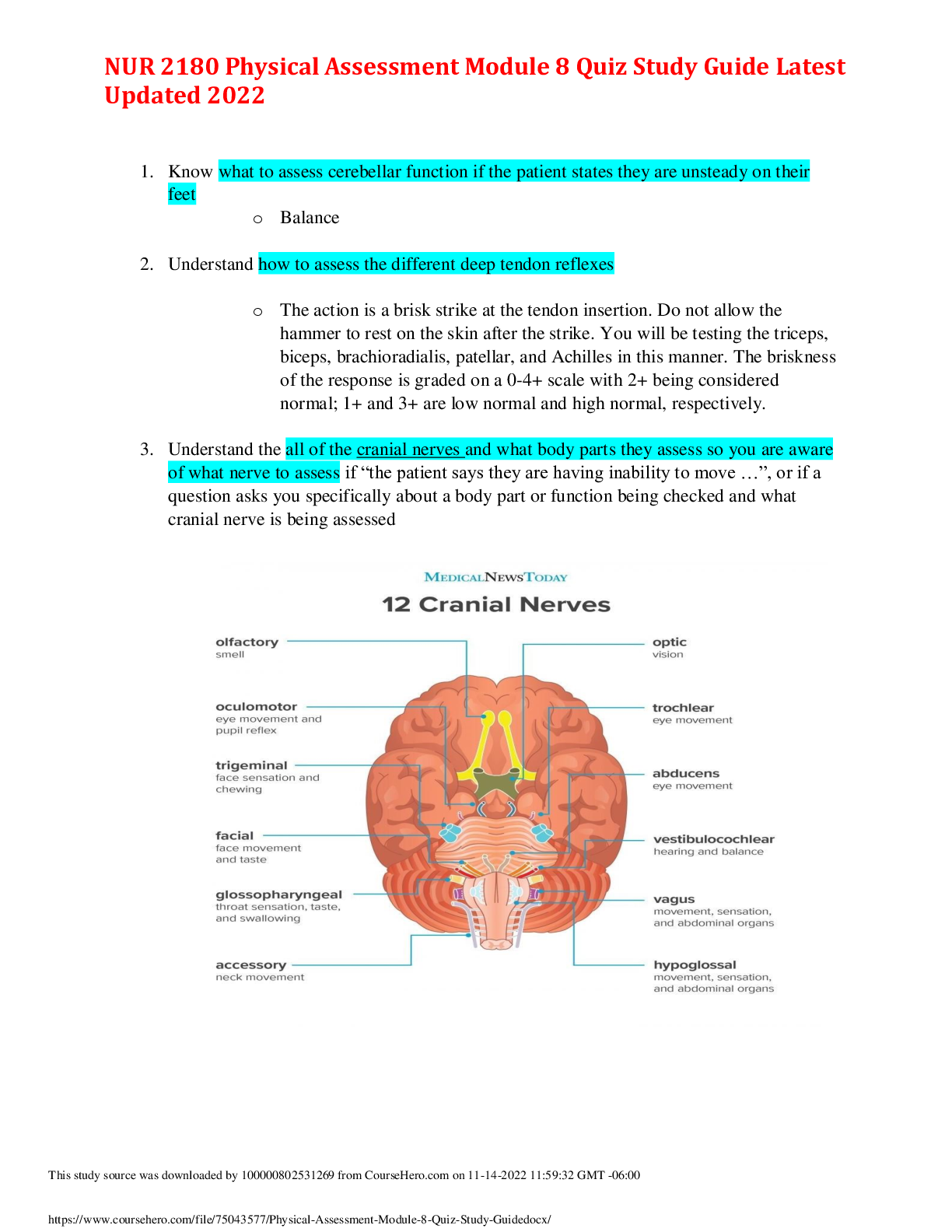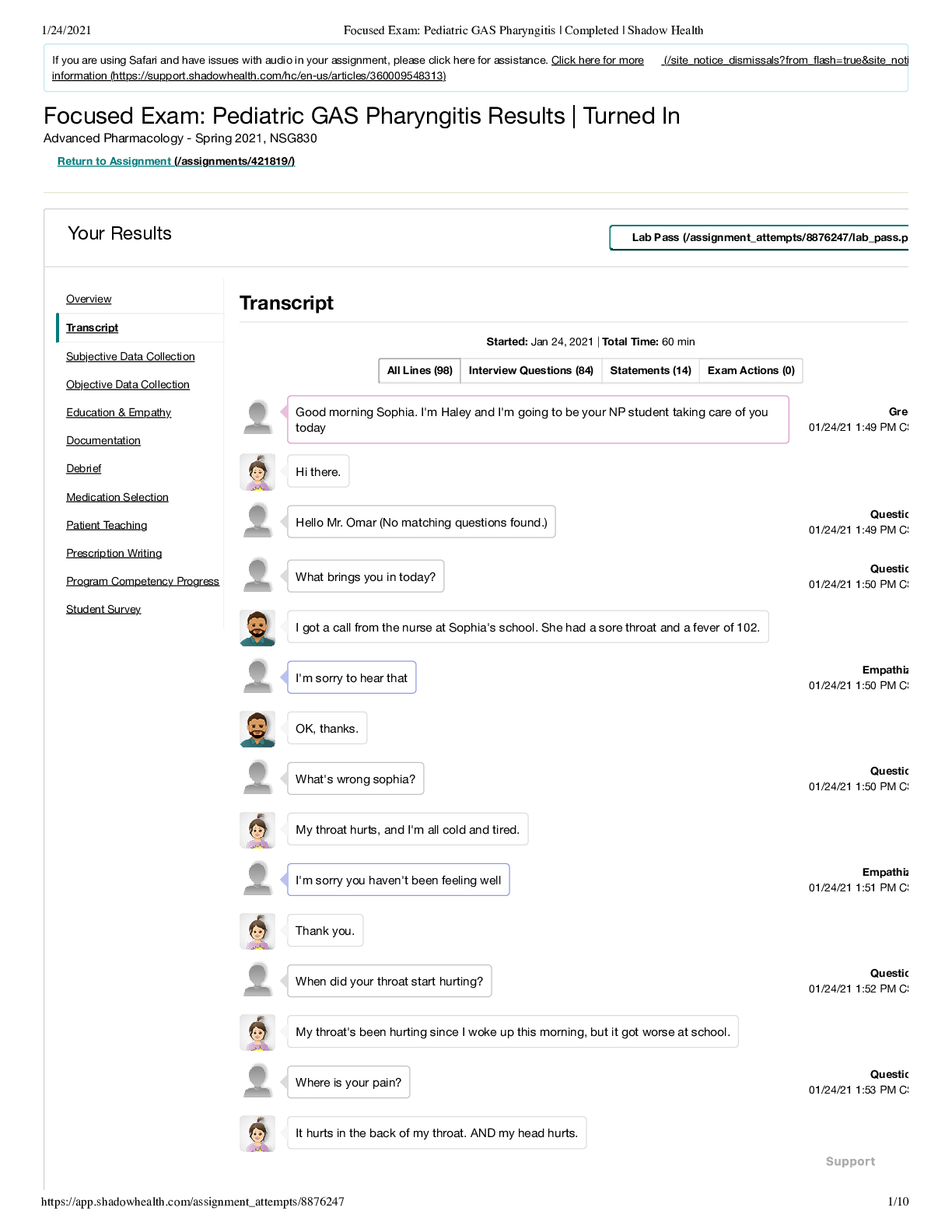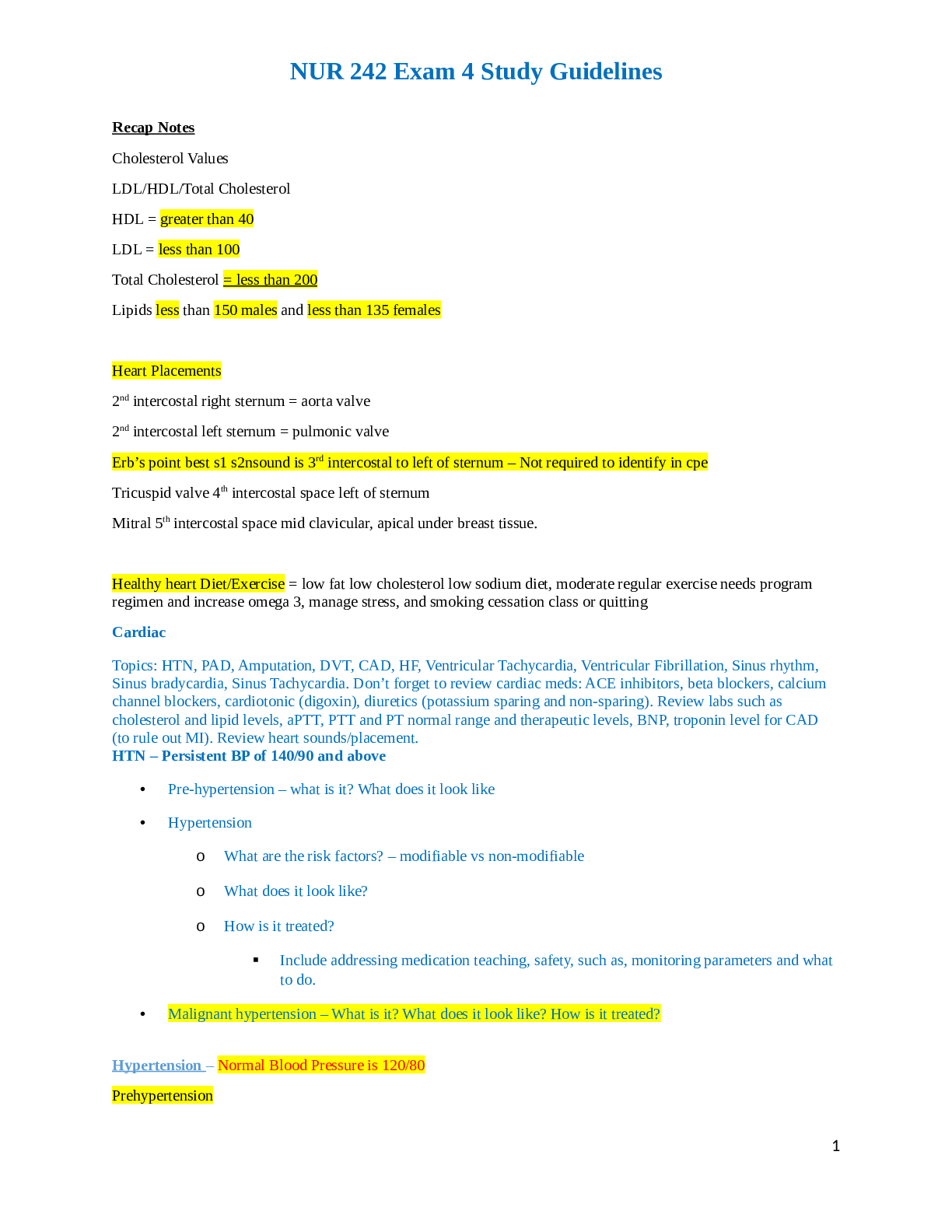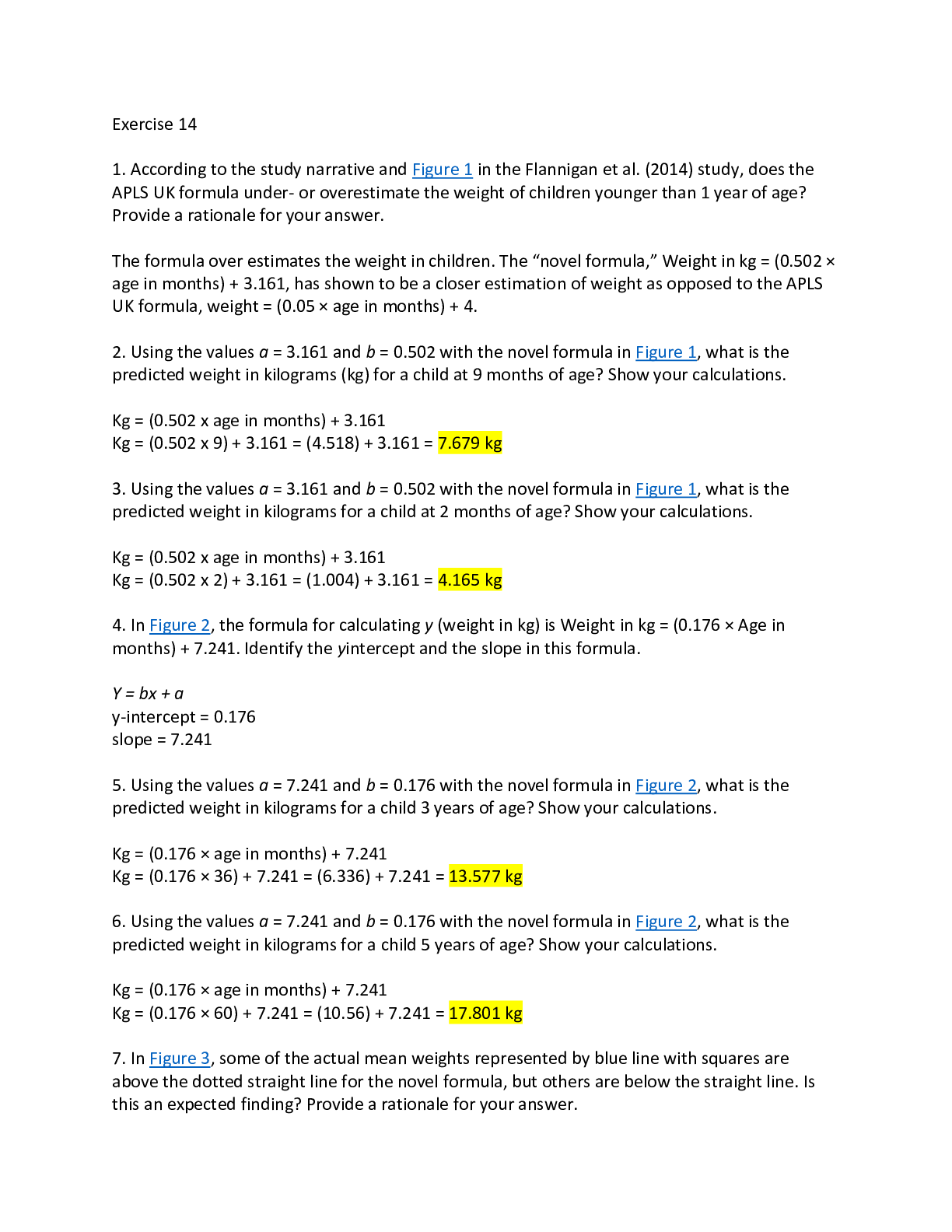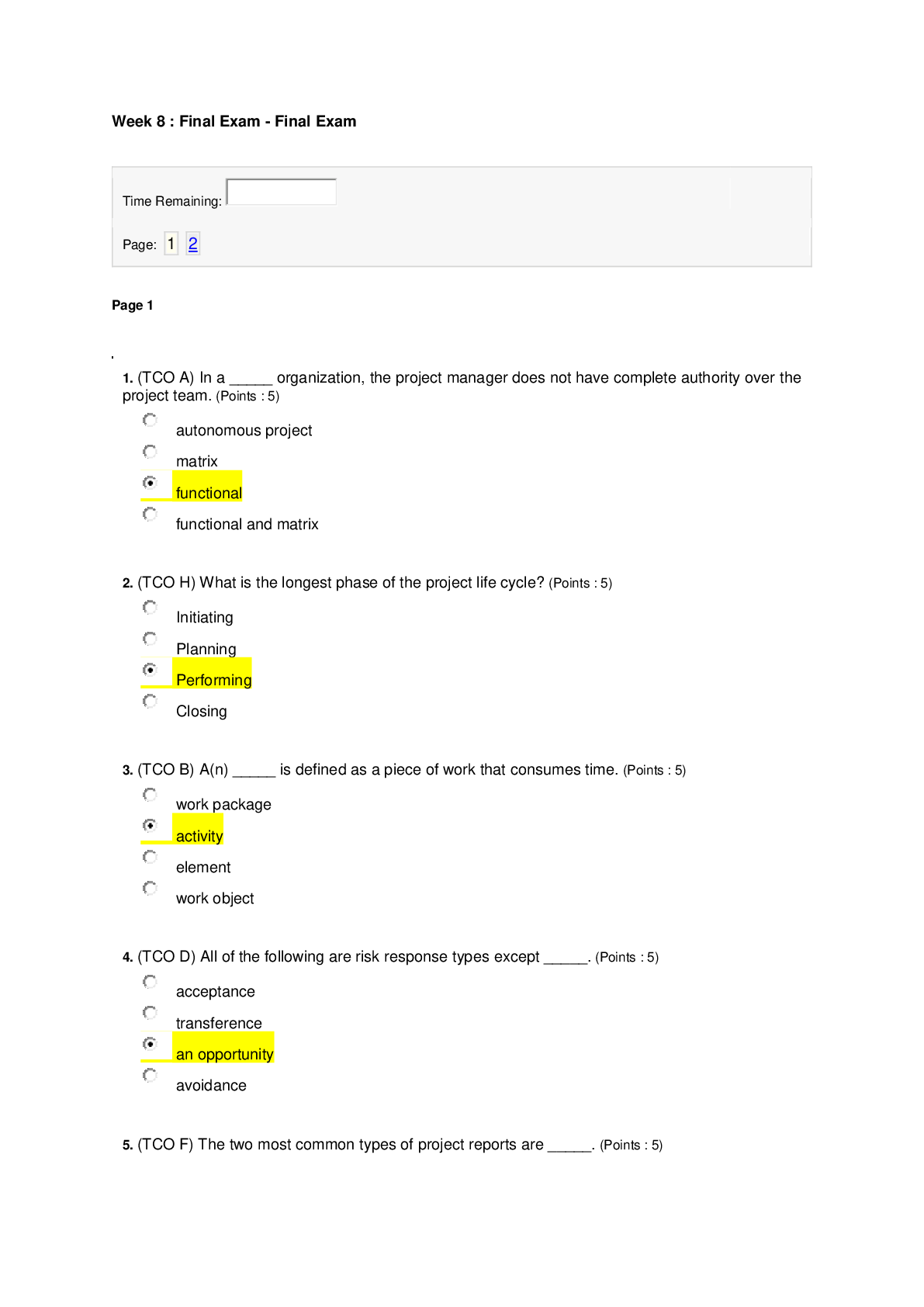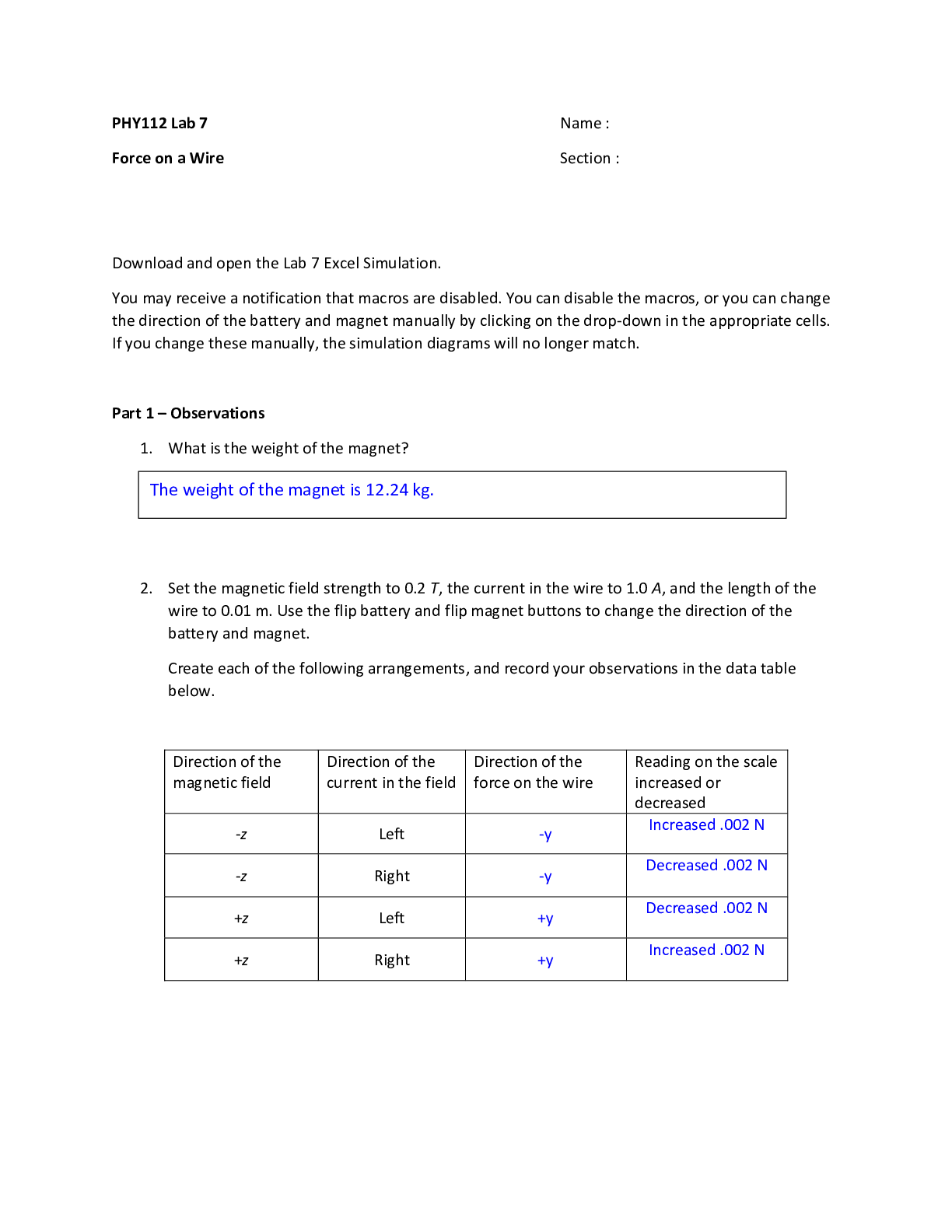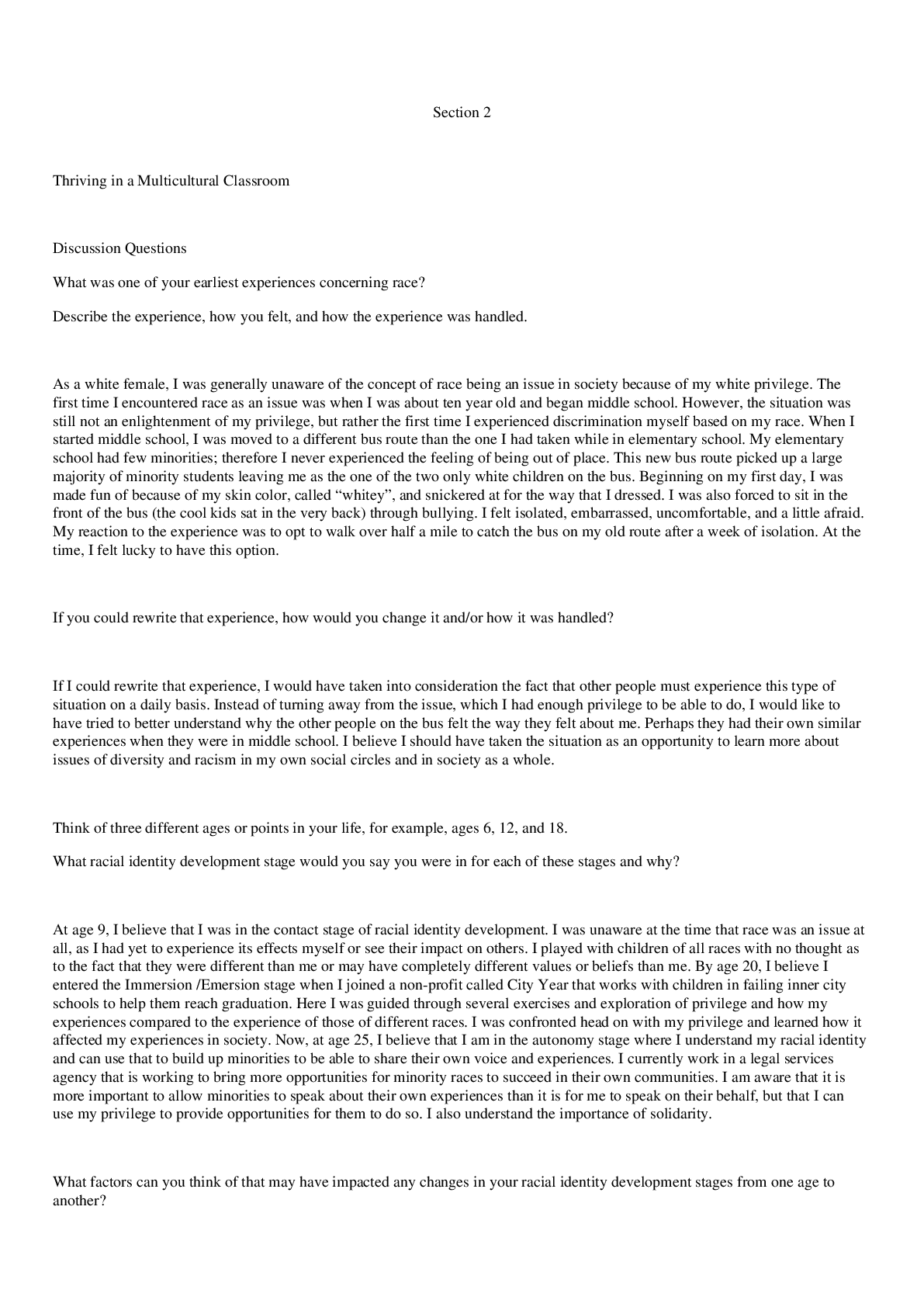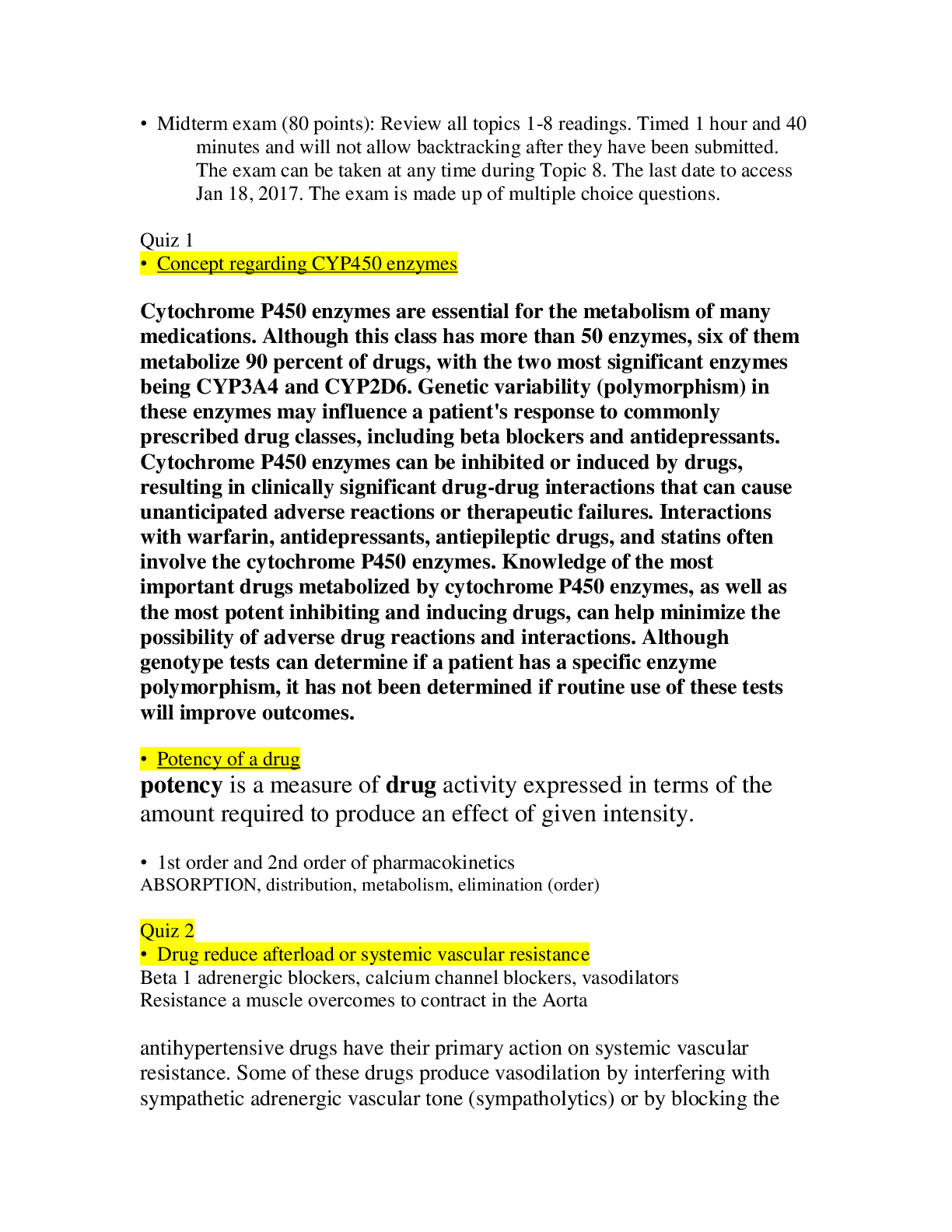*NURSING > STUDY GUIDE > Week-6-Infertility-Fetal-Development-AP-of-Pregnancy-Chapter-9-12-13.docx[full document] graded A+ (All)
Week-6-Infertility-Fetal-Development-AP-of-Pregnancy-Chapter-9-12-13.docx[full document] graded A+
Document Content and Description Below
Week #6: Infertility, Conception and Fetal Development, A&P of Pregnancy—Chapter #9, 12, 13 1 Infertility— Chapter #9 - Affects about 10%-15% of the reproductive-age population (quality of life... ) Subfertility: prolonged time to conceive (implied) Sterility: inability to conceive - Increases with age - Issues with both genders as age increases - Diagnosis and treatment of infertility require physical, emotional, and financial investment Factors Associated with Infertility Female infertility (Box 9-1) - Congenital or developmental factors o Hormonal and Ovulatory factors o Tubal/peritoneal factors o Uterine factors: Anomalies, Adhesions, STIs (Endometriosis) o Vaginal: Cervical factors pH—Alkaline cervical mucous required, vaginal fluid is 4-5 acidic Isoimmunization: developing antibodies to sperm o Other factors: obesity, dysfunctional thyroid, nutritional deficiencies Male infertility (Box 9-2) o Can be caused by structural and hormonal disorders Undescended testes Hypospadias Varicocele Low testosterone levels- workplace exposures? Azoospermia- no sperm produced Oligospermia- few sperm produced Substance abuse Care Management Assessment of female infertility Detection of ovulation Hormone analysis Ultrasonography Timed endometrial biopsy Hysterosalpingography (instillation of radiopaque contrast material) Hysteroscopy Laparoscopy Timed endometrial biopsy Assessment of male infertility Semen analysis-- Ultrasonography Assessment of the couple Post-Coital test (PCT) Timed intercourse Plan of care and Interventions o Psychosocial o Nonmedical (modest weight loss 5-10% ↑ fertility) o Herbal alternative measures o Medical—review meds… Clomiphene citrate, FSH, HCG, Progesterone, Metformin, etc. o Surgical Assisted reproductive therapies (ARTs) *don’t memorize* o In vitro fertilization–embryo transfer (IVF-ET) o Intracytoplasmic sperm injection (ICSI) o Preimplantation genetic diagnosis (PGD) o Cryopreservation of human embryos o Gamete intrafallopian transfer (GIFT) o Zygote intrafallopian transfer (ZIFT) o Oocyte donation o Embryo donation o Surrogate mothers/embryo hosts o Therapeutic donor insemination (TDI) o Adoption Key Points - Infertility: inability to conceive and carry a child to term gestation - Infertility affects 10%-15% of otherwise healthy adults and increases as woman ages, especially after age 40 - In the U.S., about 40% of infertility related to female causes; 40% male causes; 20% unexplained causes - Common etiologic factors include decreased sperm production, ovulation disorders, tubal occlusion, and endometriosis - Investigation of infertility is conducted systematically and simultaneously for male and female - Relationship dynamics, sexuality, and ability to cope with psychologic and emotional effects caused by diagnostic procedures and treatment of infertility must be considered - Most infertility cases are treated with conventional medical and surgical therapies; less than 3% treated with in vitro fertilization - Reproductive alternatives for family building o IVF-ET o GIFT o ZIFT o Oocyte donation [Show More]
Last updated: 2 years ago
Preview 1 out of 7 pages
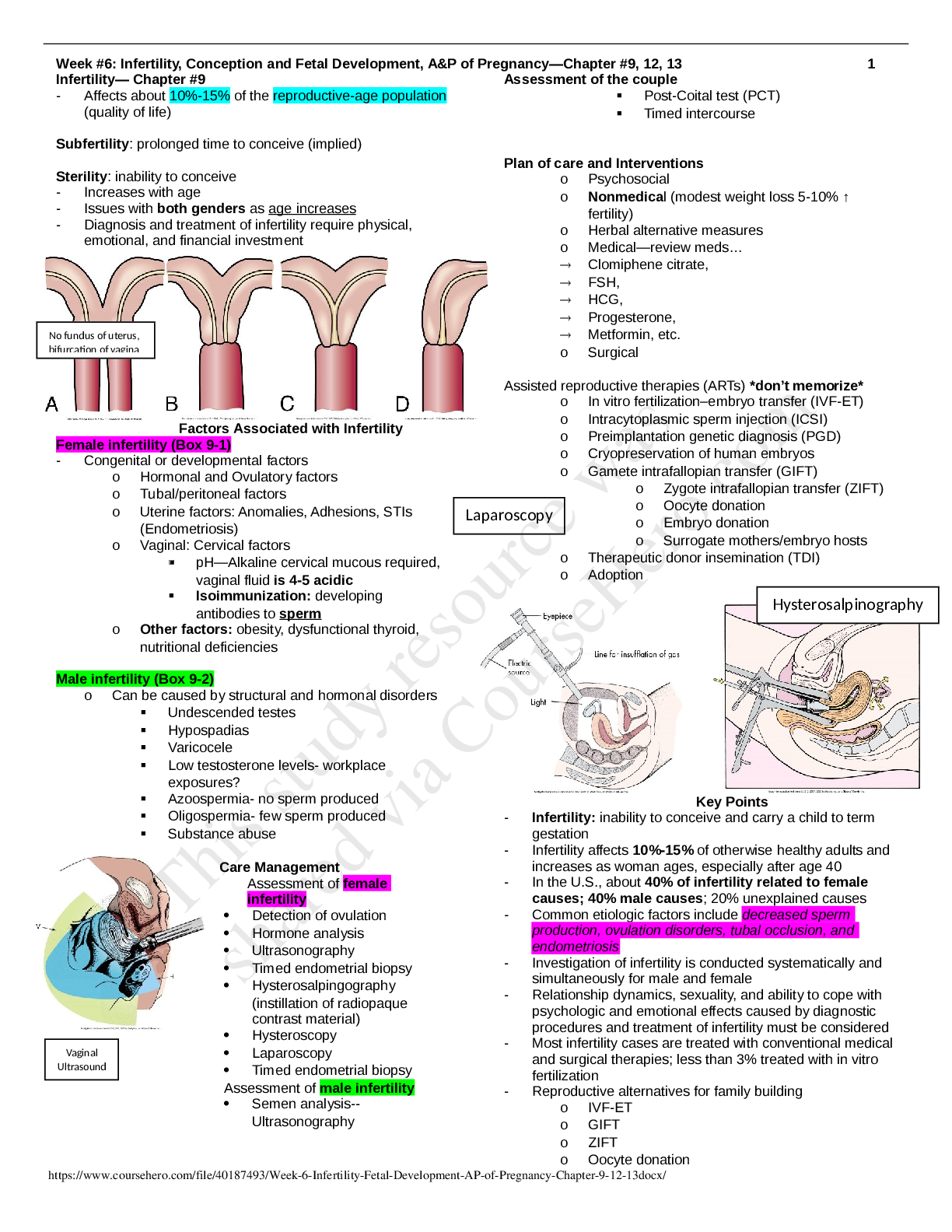
Buy this document to get the full access instantly
Instant Download Access after purchase
Buy NowInstant download
We Accept:

Reviews( 0 )
$13.50
Can't find what you want? Try our AI powered Search
Document information
Connected school, study & course
About the document
Uploaded On
Mar 20, 2021
Number of pages
7
Written in
Additional information
This document has been written for:
Uploaded
Mar 20, 2021
Downloads
0
Views
48


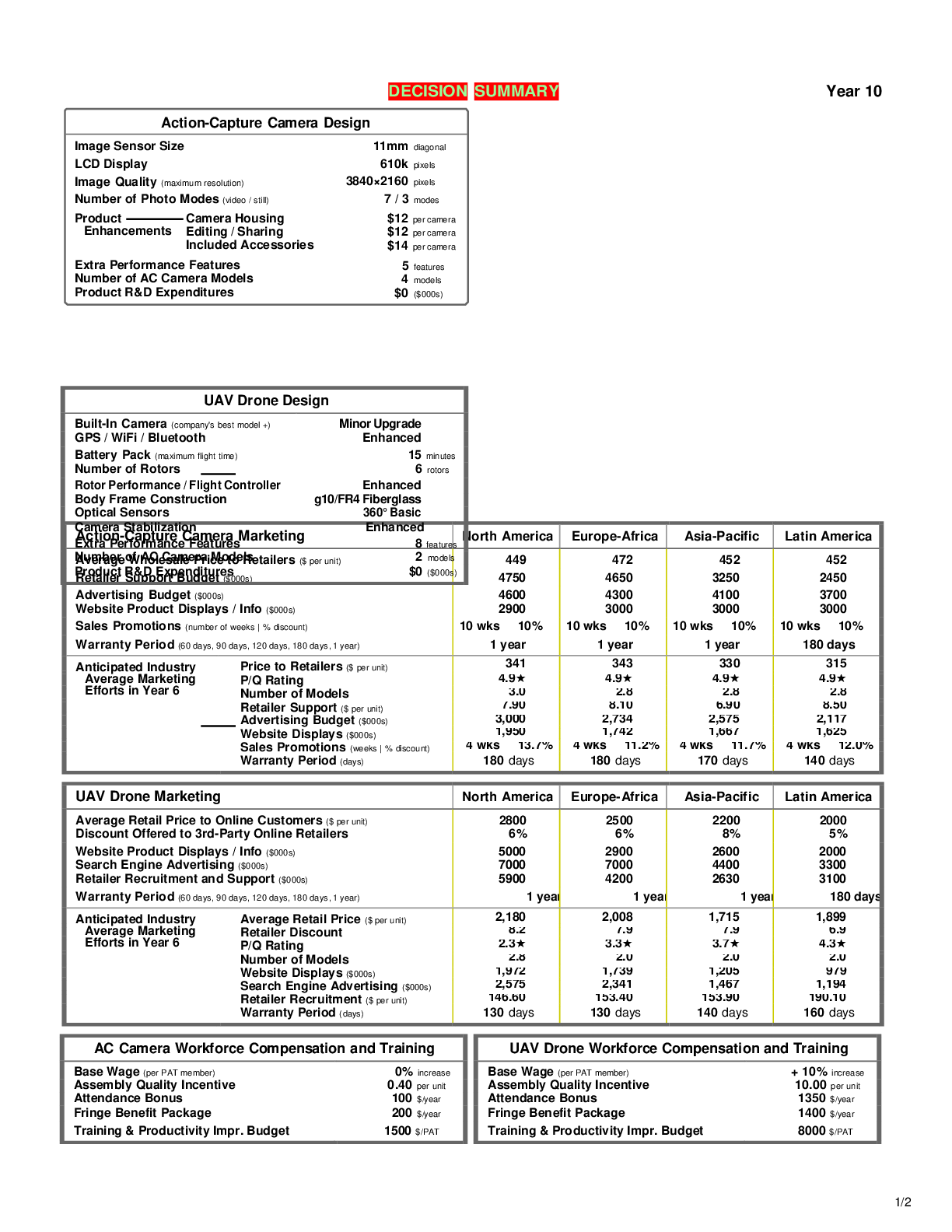
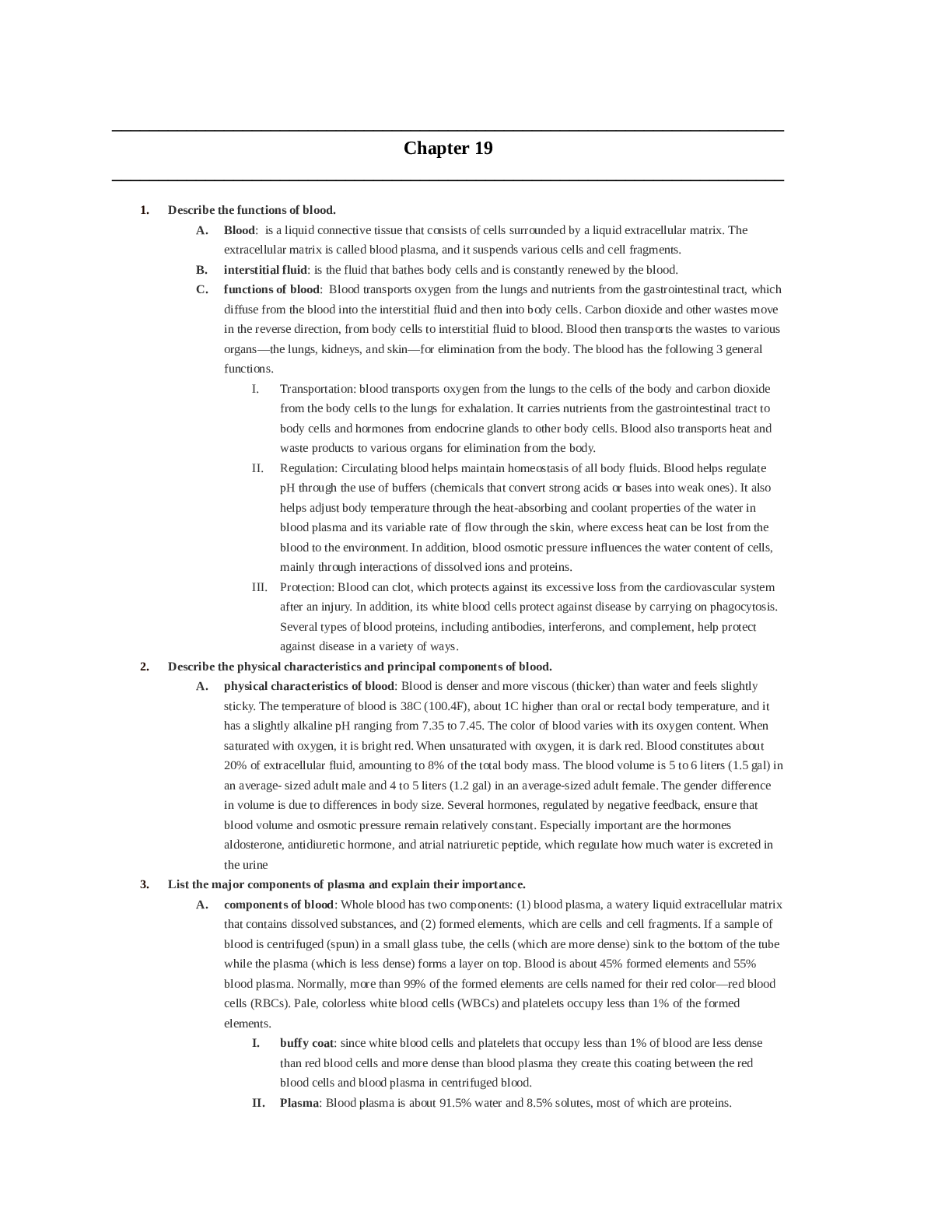


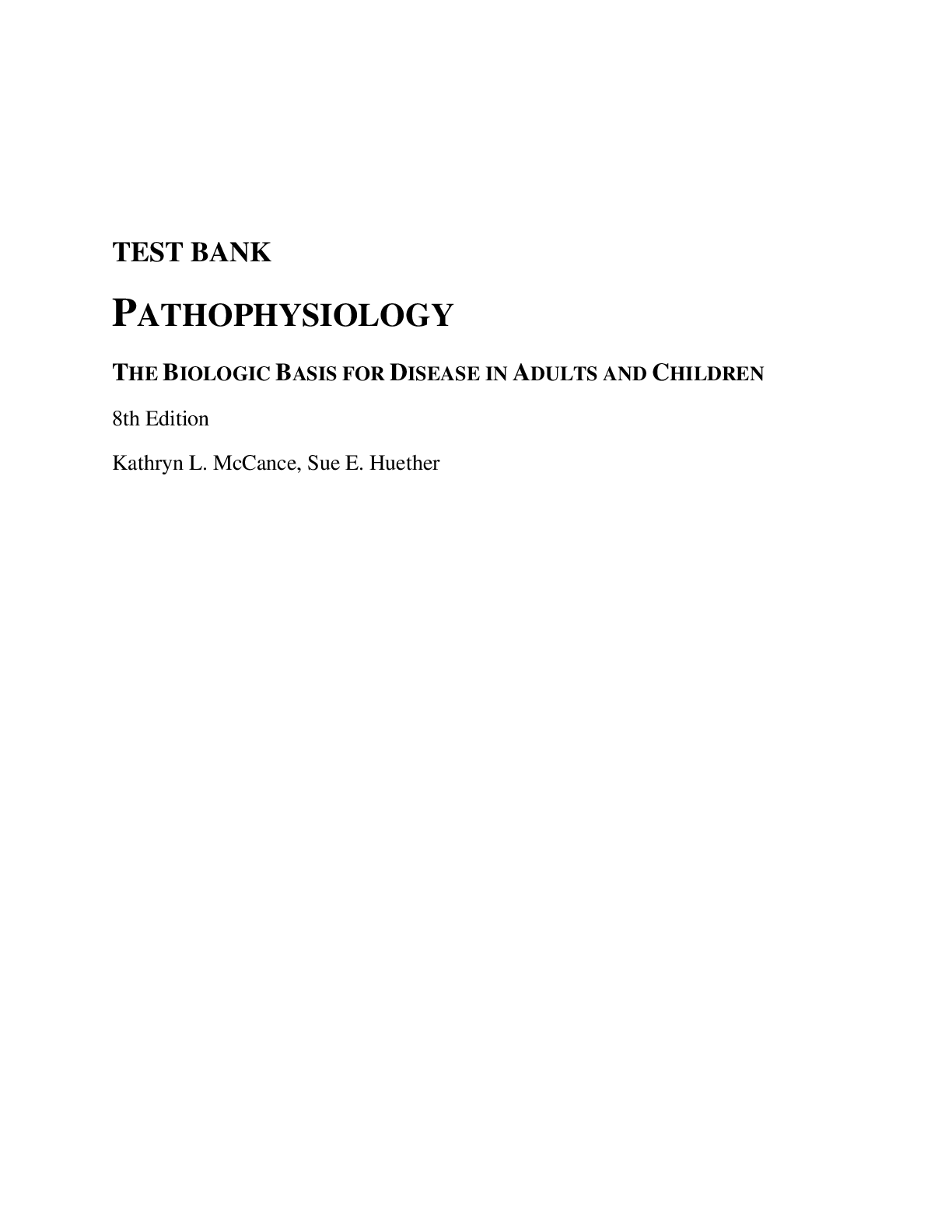
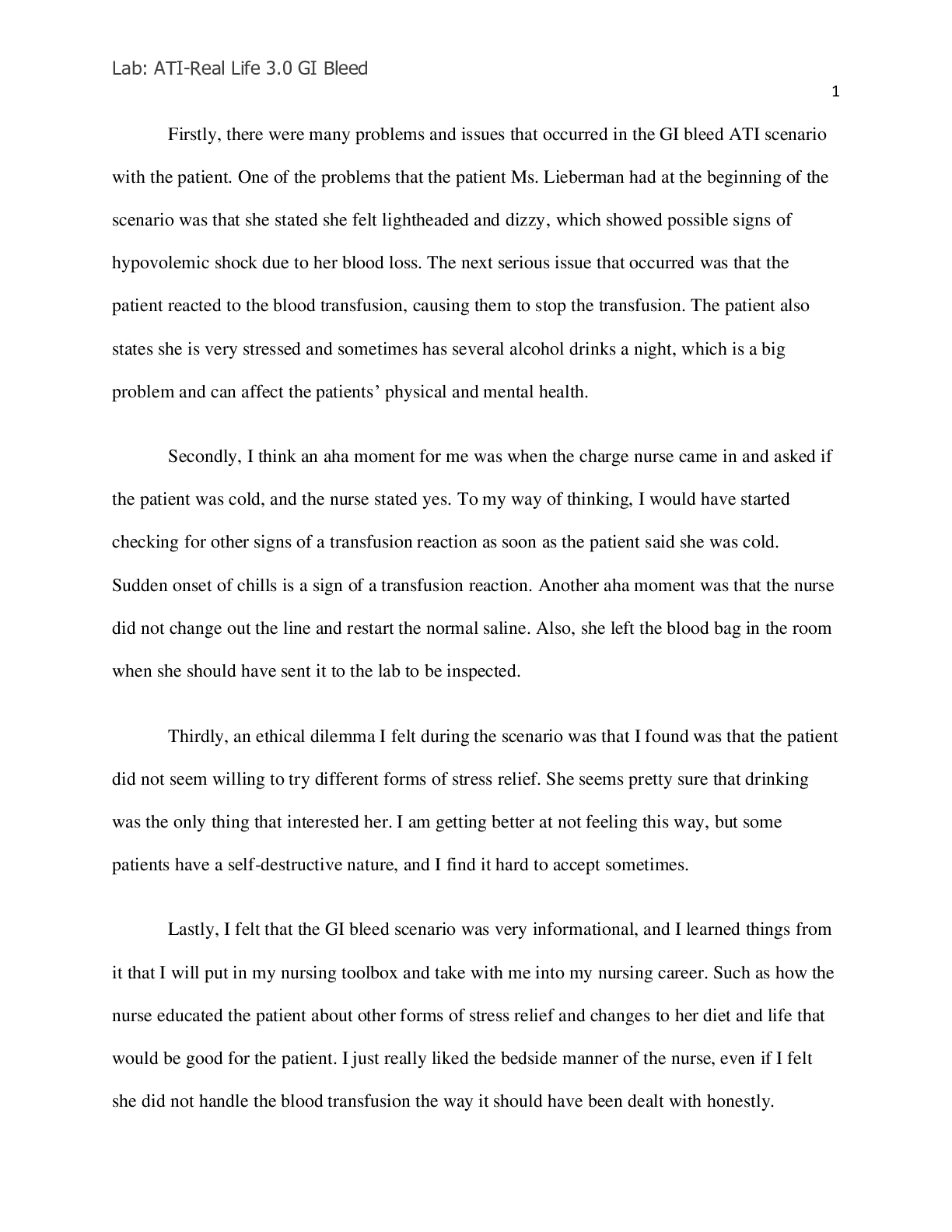
.png)
